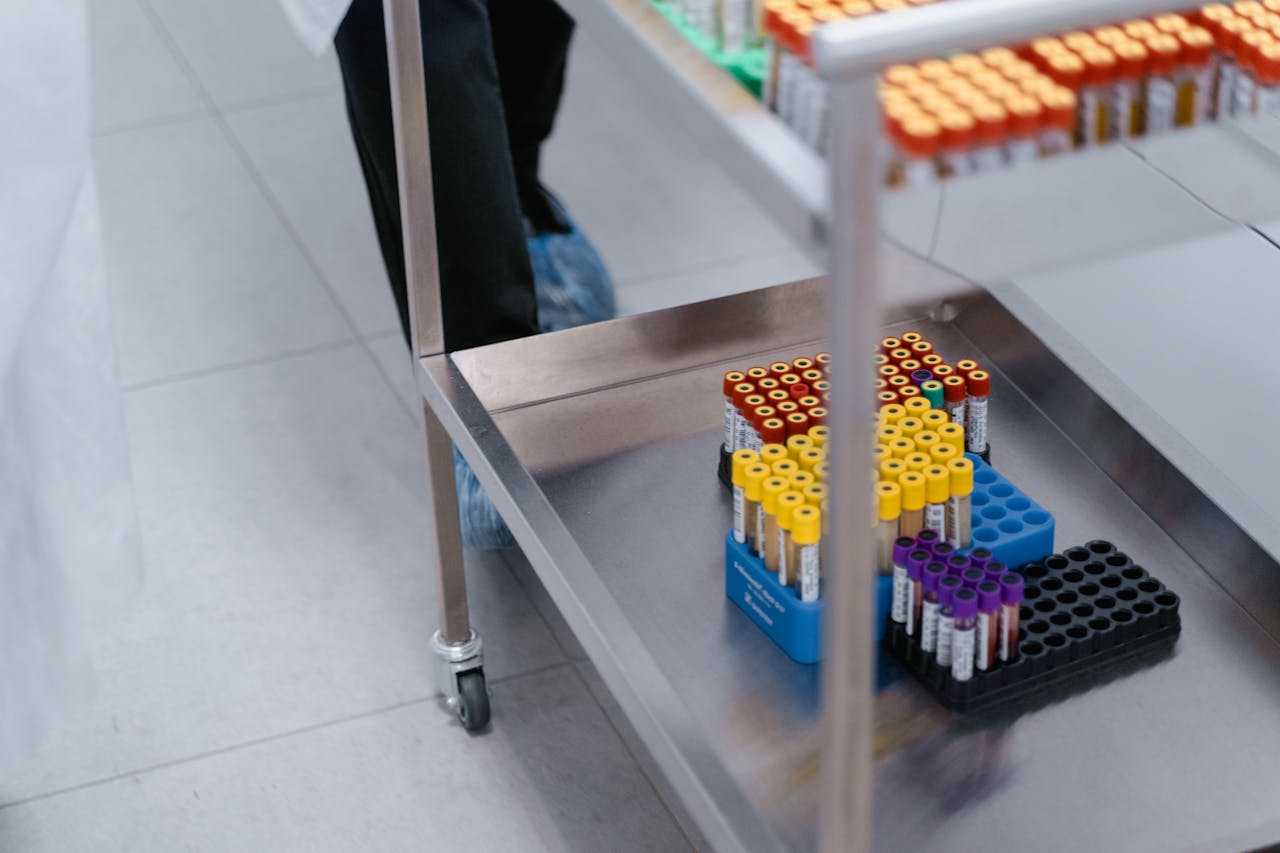Chronic Myeloid Leukemia
Chronic Myeloid Leukemia (CML) is a type of cancer that originates in the bone marrow, where blood cells are produced. This cancer is linked to an abnormal genetic mutation, the BCR-ABL gene, which promotes uncontrolled cell growth. CML primarily affects adults, accounting for about 15% of all leukemia cases, but it can occasionally occur in children as well.
Causes and Risk Factors
The key hallmark of CML is the Philadelphia chromosome, a genetic abnormality that creates the BCR-ABL fusion gene. This gene produces a tyrosine kinase protein, which drives excessive cell proliferation. While the precise causes are not entirely clear, exposure to radiation and certain environmental factors may increase the risk of CML.
Symptoms
CML symptoms often develop slowly and may include:
- Fatigue
- Weight loss
- Night sweats
- Fever
- Enlarged spleen (causing a feeling of fullness or discomfort)
- Easy bruising or bleeding
In some cases, routine blood tests detect the disease before symptoms arise.
Diagnosis of CML
Diagnosis involves a combination of tests:
- Blood tests: To analyze cell counts and detect abnormal white blood cells.
- Bone marrow aspiration and biopsy: To confirm leukemia and assess its stage.
- Genetic testing: Techniques like fluorescent in situ hybridization (FISH) and polymerase chain reaction (PCR) detect the presence of the BCR-ABL gene and monitor treatment response【12】【13】.
Searched 4 sites
Chronic Myeloid Leukemia (CML): A Comprehensive Overview
Chronic Myeloid Leukemia (CML) is a type of cancer that originates in the bone marrow, where blood cells are produced. This cancer is linked to an abnormal genetic mutation, the BCR-ABL gene, which promotes uncontrolled cell growth. CML primarily affects adults, accounting for about 15% of all leukemia cases, but it can occasionally occur in children as well.
Causes and Risk Factors
The key hallmark of CML is the Philadelphia chromosome, a genetic abnormality that creates the BCR-ABL fusion gene. This gene produces a tyrosine kinase protein, which drives excessive cell proliferation. While the precise causes are not entirely clear, exposure to radiation and certain environmental factors may increase the risk of CML.
Symptoms
CML symptoms often develop slowly and may include:
- Fatigue
- Weight loss
- Night sweats
- Fever
- Enlarged spleen (causing a feeling of fullness or discomfort)
- Easy bruising or bleeding
In some cases, routine blood tests detect the disease before symptoms arise.
Diagnosis of CML
Diagnosis involves a combination of tests:
- Blood tests: To analyze cell counts and detect abnormal white blood cells.
- Bone marrow aspiration and biopsy: To confirm leukemia and assess its stage.
- Genetic testing: Techniques like fluorescent in situ hybridization (FISH) and polymerase chain reaction (PCR) detect the presence of the BCR-ABL gene and monitor treatment response【12】【13】.
Treatment Options
The standard treatment for CML focuses on targeted therapy with tyrosine kinase inhibitors (TKIs), which block the abnormal protein responsible for cancer growth. Some of the key drugs include:
- Imatinib (Gleevec): The first-generation TKI, which revolutionized CML treatment.
- Dasatinib (Sprycel) and Nilotinib (Tasigna): Second-generation TKIs used for patients who develop resistance or cannot tolerate Imatinib.
- Ponatinib (Iclusig): A third-generation TKI effective against mutations that resist earlier therapies.
In some cases, chemotherapy and stem cell transplantation may be recommended, especially when the disease progresses or does not respond to TKIs【13】【14】.
Outlook and Management
With TKIs, most CML patients achieve long-term remission and manage the disease as a chronic condition. Ongoing monitoring using PCR helps ensure the treatment remains effective and adjusts it as needed.
While side effects of treatment are common—such as nausea, muscle cramps, and fatigue—many patients can continue normal activities with appropriate care and lifestyle adjustments.
For more information and personalized care options, visit Apollo Cancer Centres’ official page on CML: Apollo Hospitals – CML Overview【12】【14】.


